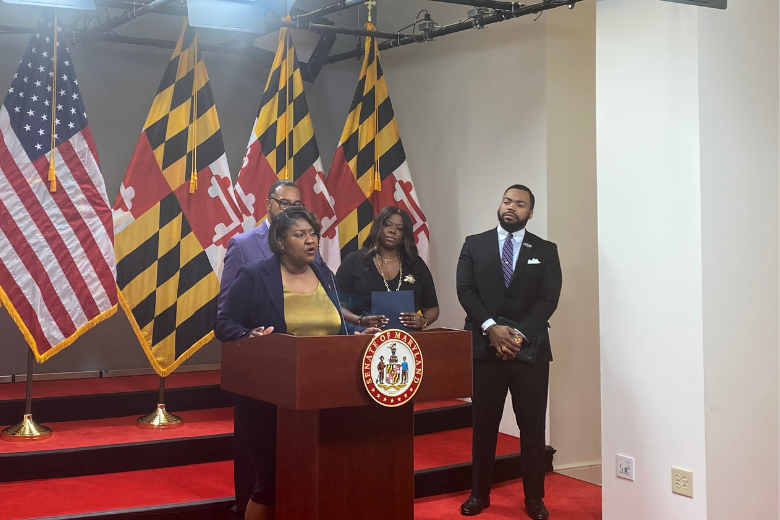In recent years, violent crimes have occurred in places that shock the conscience: there was the attempted murder of a middle school student on a bus, and an actual murder in a graveyard during a funeral.
Even more recently, kids have brought guns to school, there’s been hateful vandalism in public libraries and other parts of the country have seen shootings inside churches.
Now, state lawmakers in Prince George’s County, Maryland, are proposing tougher sentences for crimes that happen in certain “sacred spaces.”

The Sacred Places Safety Act is being led through the Maryland House of Delegates by Del. Tiffany Alston, and has about two dozen sponsors already. The list includes lawmakers from both parties.
“It is a 10-year enhancement. It’s at the discretion of the judge,” Alston said, ahead of the initial hearing on the bill. “Sacred places as defined by the bill include places of worship, schools, educational facilities, and medical facilities like hospitals.”
“When we are at our most vulnerable state, this is not the time to prey on people,” Alston added. “This is not the time to commit violent felonies and acts of crime.”
Prince George’s County State’s Attorney Aisha Braveboy said if the bill passes, the enhancement would work similarly to how hate crime statutes work.
“There would be the underlying offense that the individual would be sentenced for,” Braveboy explained, “but then they can also … receive an enhanced sentence because they committed a crime in a sacred place.”
That enhanced sentence could be anywhere from as little as one day to 10 years, depending on the severity of the crime. It would be up to the judge to impose it.
Backing it in the upper chamber is state Sen. Anthony Muse, who is also a pastor in Prince George’s County.
“We should not be in so-called ‘safe places’ in which we are most vulnerable and be constantly worried about a tragedy happening,” Muse said. “When you’re in a church and someone comes up to a church door what do you do? Do you immediately say ‘I’ve got to check you, see if you have a gun?’ That doesn’t happen there.
“I never thought I’d see the day where we’d be surrounded by security in our churches but we are,” he added.
The bill would only apply to juveniles if they’re being charged as an adult. While the bill had its first legislative hearing and public comment period on Tuesday, a full committee vote won’t come until later this month.
Get breaking news and daily headlines delivered to your email inbox by signing up here.
© 2024 WTOP. All Rights Reserved. This website is not intended for users located within the European Economic Area.







